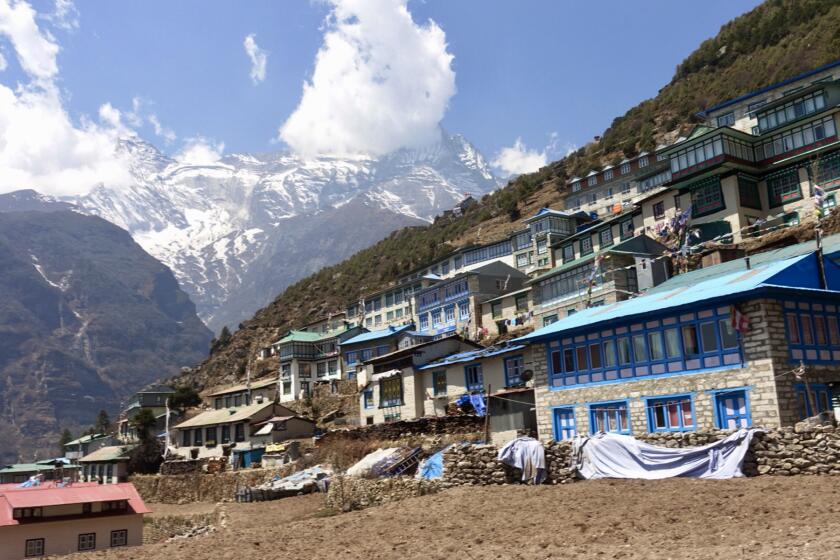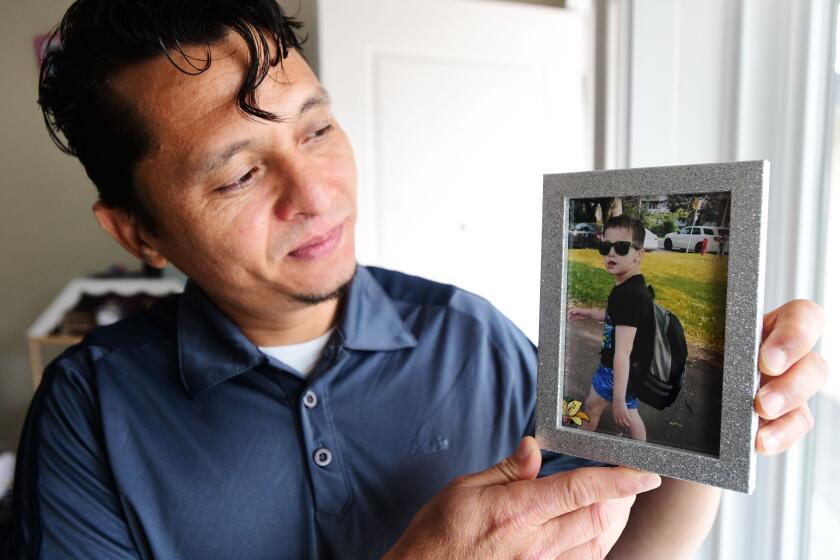In abrupt escalation, Hamas rockets target Jerusalem and Israel retaliates
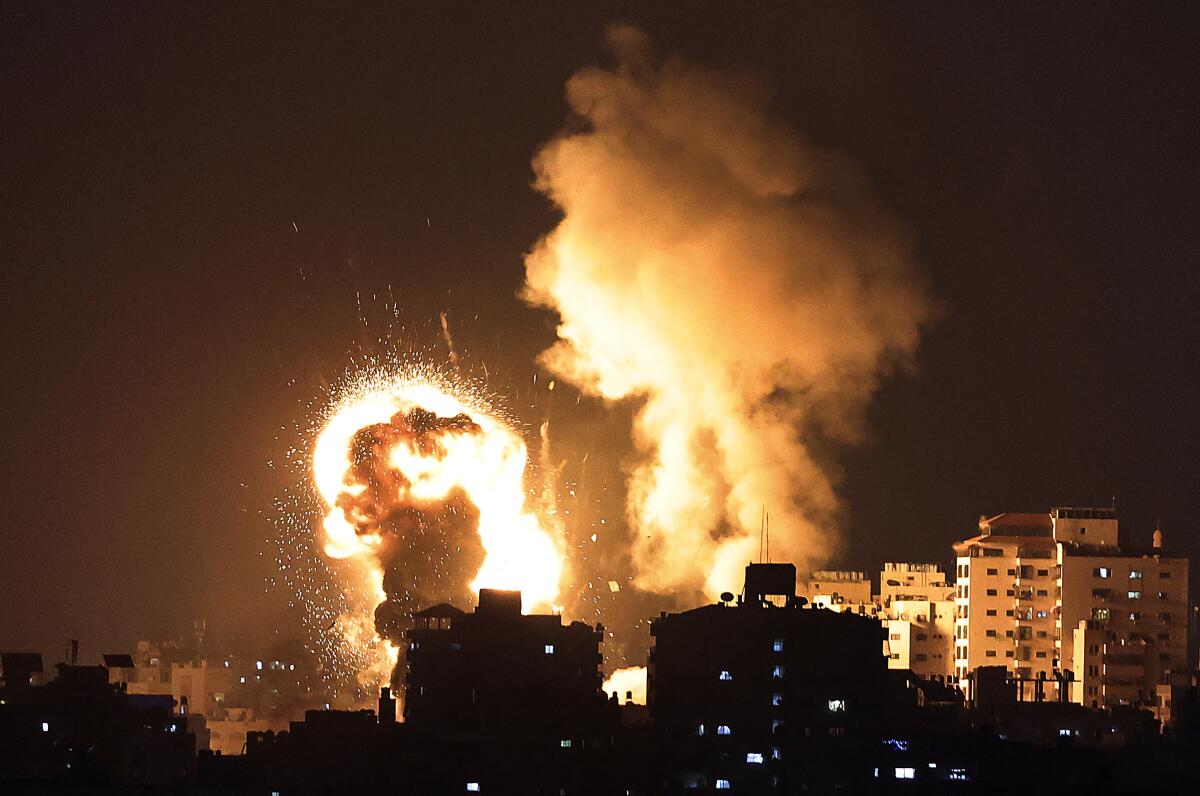
- Share via
TEL AVIV — Hours after hundreds of Palestinians were injured in confrontations with Israeli police near a flashpoint religious site in Jerusalem’s contested Old City, Hamas militants in the Gaza Strip fired dozens of rockets into Israel on Monday evening, triggering retaliatory Israeli strikes.
The exchange of fire continued into Tuesday, with deadly results. Israeli airstrikes on Gaza killed 26 people, nine of them children, Palestinian health officials said. Hundreds of rockets fired into Israel by Hamas and Islamic Jihad militants resulted in the deaths of two Israelis.
The rapid escalation of hostilities, which raised the specter of wider conflict, followed weeks of unrest in and near the Old City over the planned eviction of some Palestinians from their homes in East Jerusalem and curbs on Palestinian access to sensitive religious sites during the Muslim holy month of Ramadan.
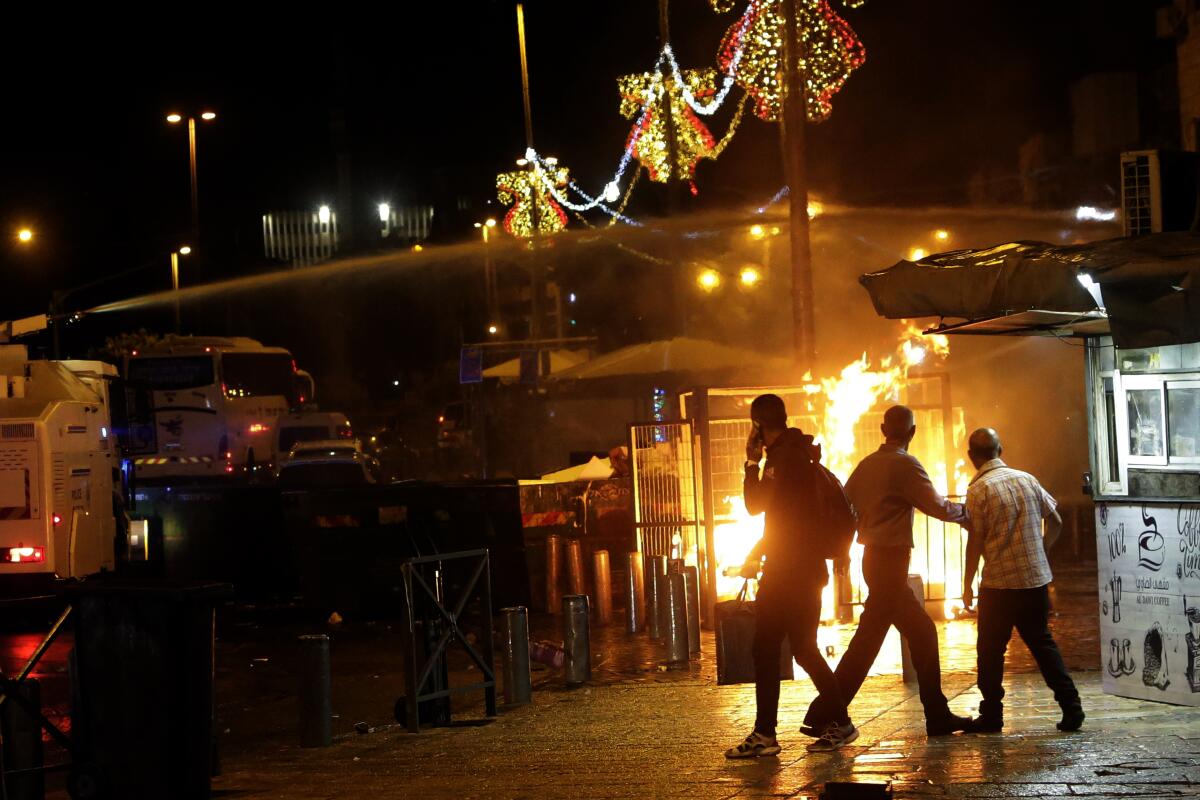
Palestinians have lambasted days of aggressive behavior by Israeli police, including the bloodying of demonstrators and bystanders, and the firing of rubber-coated bullets and stun grenades into the Al Aqsa Mosque, which sits atop a disputed plateau in the heart of the Old City. It is the third-most sacred site in Islam and also revered by Jews as the Temple Mount, and access is controlled by Israeli security. A widely viewed video circulated on social media showed Israeli police kicking and beating a Palestinian taken into custody near the site.
Business owners in Nepal’s Solukhumbu region, which draws mountaineers from all over, are buried in debt, with almost no income and no relief in sight.
As rockets were fired toward the Jerusalem area from Gaza soon after 6 p.m. on Monday, sirens sounded throughout the city. People fled playgrounds, hurrying for shelter with their children. Footage showed one Jerusalem park empty, with dozens of strollers left behind.
The Knesset, Israel’s parliament, halted a session so lawmakers could seek shelter. Prime Minister Benjamin Netanyahu, Israel’s politically embattled leader, said Israeli forces would respond “very forcefully” to strikes by Palestinian militants from inside Gaza, which is ruled by Hamas. He called the targeting of Jerusalem a “red line.”
An official in Egypt told the Associated Press on Tuesday that the country was trying to broker a cease-fire.
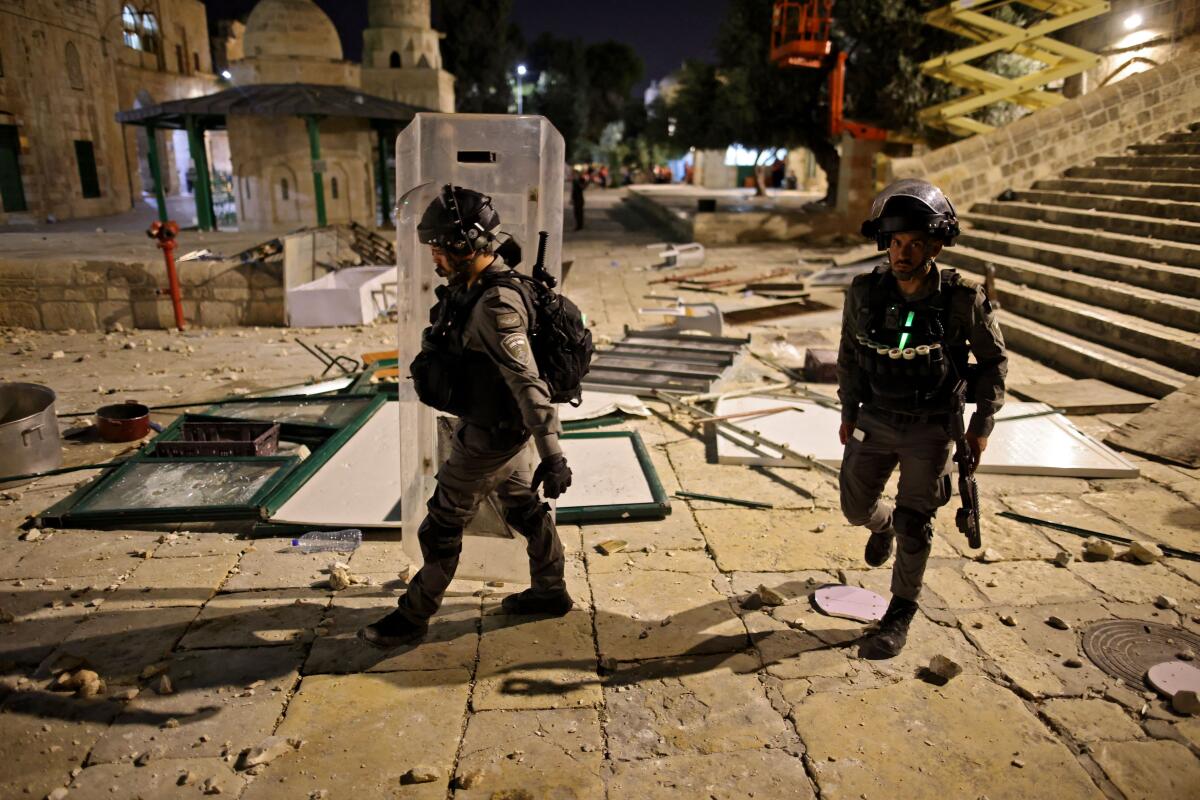
In Gaza, the Health Ministry said nine children were among 26 people killed, while Israel’s military said 15 of the dead were militants. The Palestinian Red Crescent said more than 300 Palestinians were hurt in confrontations earlier Monday with police in the Al Aqsa compound while Israeli authorities said 21 police officers and five Israeli civilians were injured in the area.
Tensions came to a head Monday as Israel marked Jerusalem Day, a holiday commemorating the Israeli capture of East Jerusalem in the 1967 Arab-Israeli war. In a last-minute bid to tamp down confrontation between Palestinians and ultranationalist Jewish marchers, Israeli authorities rerouted part of a Jerusalem Day demonstration away from a sensitive area of the Old City, and forbade Jews to ascend the Temple Mount.
Recriminations and allegations of shoddy maintenance and corruption emerge in the wake of train crash that killed 26.
Although Hamas has often fired rockets at Israel, the targeting of Jerusalem, with its holy sites, marked a first since Israel and the militant group fought a 2014 war. The Israeli military reported a barrage of more than 250 rockets, one of which hit an apartment building, injuring six people. At least seven of the rockets were aimed toward Jerusalem.
Both Hamas and Islamic Jihad acknowledged carrying out the attacks, and Abu Ubaida, a spokesman for Hamas’ military wing, called the rocket strikes a message “the enemy should understand.”
Echoing a high-tech approach to past conflicts, an officer from Israel’s home-front command went on television to suggest that people download an app with rocket alerts. Citizens were also advised to seek shelter during an alert, and to lie flat on the ground, hands over head, if caught out in the open.
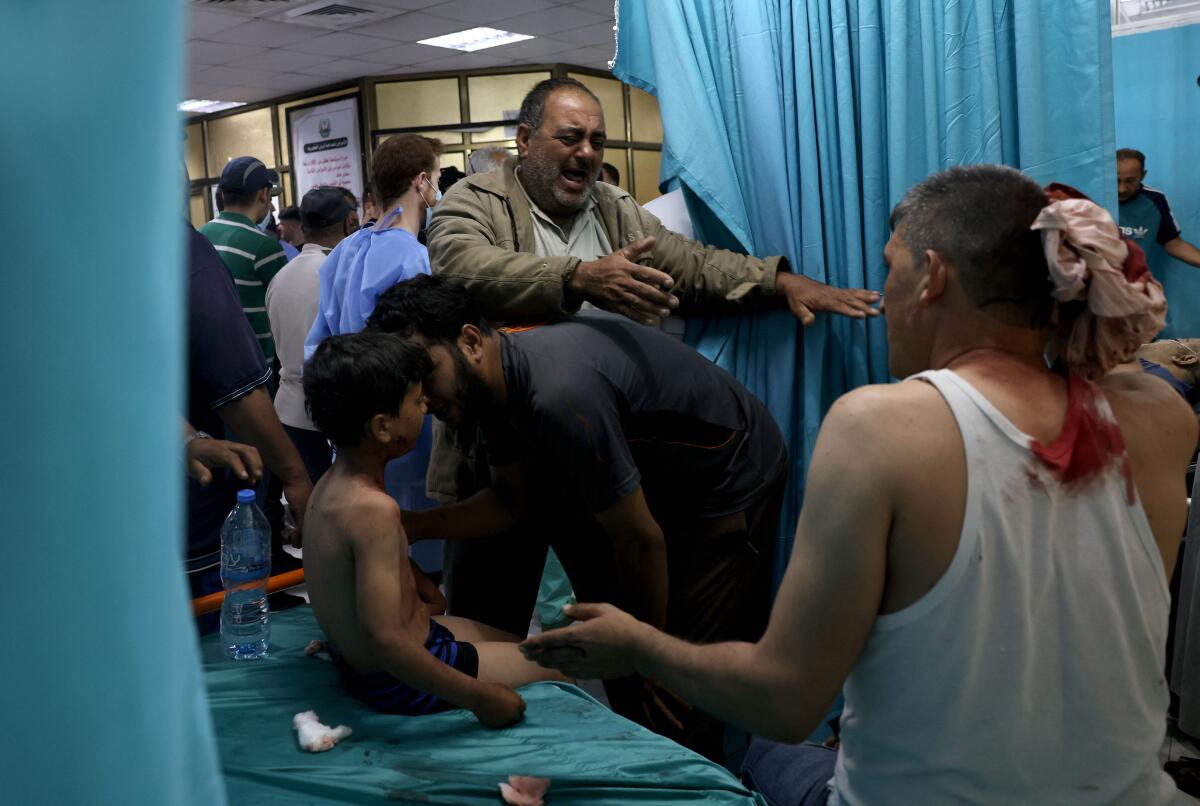
Family separations don’t occur only at the Mexican border, as Carlos Rivera and his young son discovered when they crossed into the U.S. from Canada.
Israeli schools within 25 miles of the Gaza border were to be closed Tuesday, and in central Israel, only schools with bomb shelters would be in session, authorities said.
The growing volatility of the situation had a familiar feel to many. On Hebrew-language social media, a quote by the late playwright Hanoch Levin circulated as a meme: “In Israel there are only three seasons: winter, summer and war.”
The potential opening of a new phase of hostilities finds Israel in a state of political limbo, as the prime minister’s opponents seek to form a governing coalition following an inconclusive national election, the fourth in two years.
The unrest could hamper efforts by seven political parties calling themselves the “Change Bloc” — an anti-Netanyahu grouping that for the first time includes an Arab party — to form a coalition.
On the Palestinian side, with elections postponed by Palestinian Authority President Mahmoud Abbas, the rocket attacks were seen by some as a bid by Hamas to claim a greater role in responding to recent events in Jerusalem. Those include the prospective evictions in the
East Jerusalem neighborhood of Sheik Jarrah, where Jewish settlers have engaged in a legal fight to take over Palestinian homes. Israel’s Supreme Court was to have ruled in the case on Monday, but put off issuing a judgment.
In Washington, State Department spokesman Ned Price called the rocket attacks by Palestinian militants an “unacceptable escalation,” and called for calm on all sides.
But the Biden administration’s relatively restrained response to Israeli police tactics against Palestinian demonstrators prompted criticism in some quarters. The liberal Jewish advocacy group J Street urged the Biden administration to respond to “the continued use of intimidation and violent, excessive force against Palestinian protesters and worshipers.”
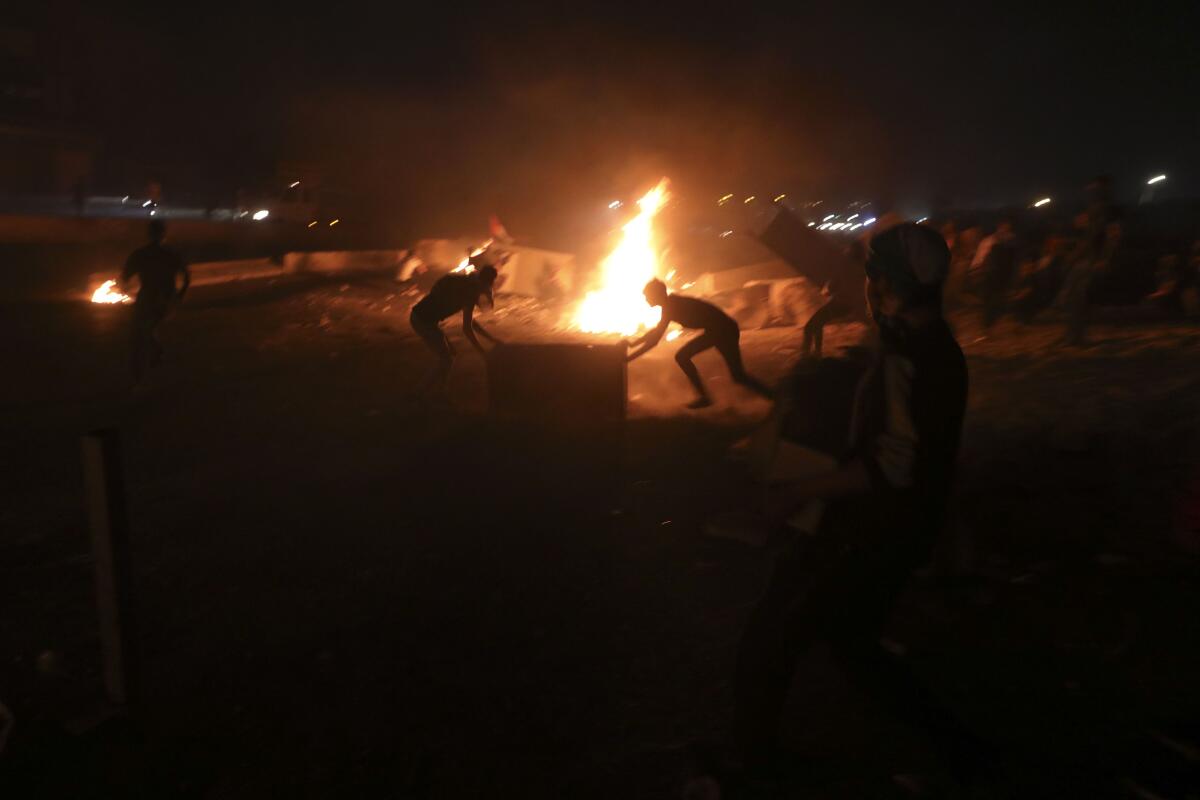
Special correspondent Kraft reported from Tel Aviv and staff writer King from Washington.
More to Read
Sign up for Essential California
The most important California stories and recommendations in your inbox every morning.
You may occasionally receive promotional content from the Los Angeles Times.
